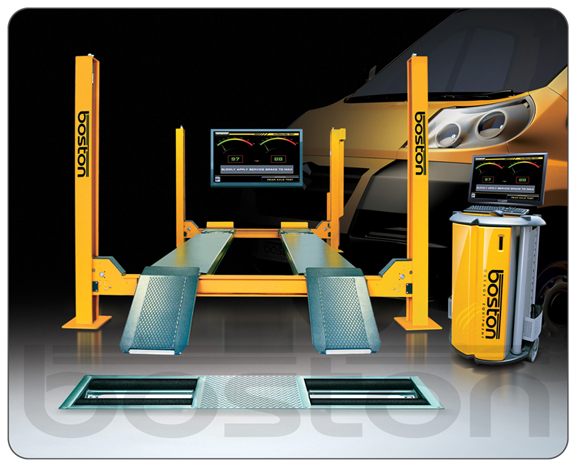So Why Buy Class 7?
We look at the many reasons to spend a little more on your new or upgraded MoT bay and enjoy the extra Class 7 profits.
By far the majority, currently 4 out of 5 MoT premises, can only test Class 4 vehicles. Looking at the MoT market, it seems that it’s short-sighted and less profitable to save the modest extra cost which can establish you as the local class 7 testing station.
Firstly, almost 50% of Class 7 vehicles fail MoT tests, and mileages average 106,000 which is a massive 52% higher than Class 4.
Testing Class 7 therefore clearly provides more repair work, which generally has better margins, and is more extensive on light commercials. With only 20% of MoT stations offering Class 7 test, there’s no shortage of customers and no need to discount. The Class 7 testing arena is indeed a buoyant and profitable sector of the vehicle repairs industry.
Furthermore, van sales and in particular LWB models are selling in record numbers as the recession recedes. That ensures continuing good business for Class 7 stations, which can also test Class 5L vehicles needing test certificates from year one. The Motor Industry organisations are lobbying for Class 7 tests to begin from year one, and should this become a reality then demand would immediately increase substantially further.
Many Class 4 test lanes can be upgraded, but in considering upgrading from Class 4, you should note that Class 7 testing compliance requires more space to accommodate the test lane and increased headroom over the entire area. Vehicles entrances also need to be higher and wider.
If you are considering a new Class 7 bay then contact major suppliers who will normally visit your premises, advise you fully on the optimum bay layout, costs etc. and will prepare drawings for DVSA approval, which is usually a free service.

We asked for the views of Ray Calcutt, MD at Boston Garage Equipment that specialises in MoT bay installations. Ray has been an MoT Authorised Examiner for 43 years and has considerable knowledge on MoT bay operations. He commented “The facts on Class 7 testing benefits speak for themselves; for a new installation, going Class 7 is the obvious choice provided the space and height requirements can be met. Plenty of good, quick and free advice is available from most suppliers and at Boston we don’t mind or criticize competition. That being said it is absolutely paramount that you buy a good European lift and braketester. He explained “Over the past ten years, there has been a growing ingress of Chinese MoT equipment entering the UK market and some big name brands are opting for larger margins from inferior vehicle lifts in particular. There is also a trend to import Chinese steel fabricated parts for assembly in Europe and tagged ‘made in Europe’. It is really expensive in the long run, to trust poor quality equipment. Always ask where equipment is manufactured and assembled and get it in writing. Then you will have a sound Class 7 bay that will be future-proof and profitable in the foreseeable UK MoT test market.”
The GEA provides a full list of authorised equipment suppliers, and it is big practical advantage to buy your complete bay from one company. This enables various items to be controlled and data displayed from a single base which are normally designed to manage optional equipment such as slide slip meters and suspension tester. It also greatly simplifies calibrations and general support for the whole test bay.
